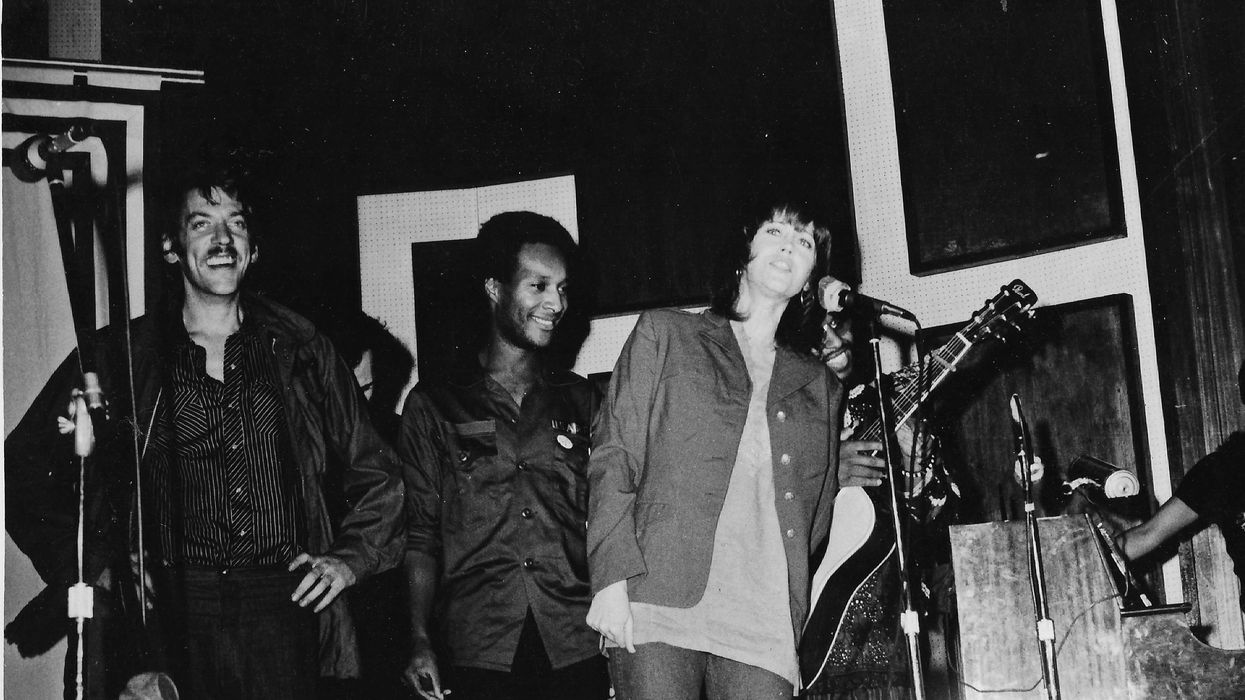Page is an American journalist, syndicated columnist and senior member of the Chicago Tribune editorial board.
News of Donald Sutherland's death at age 88 took me back to a day in 1971 when he was protesting the Vietnam War onstage with Jane Fonda and I was one of about 1,000 off-duty soldiers in their audience.
I hoped, in the spirit of John Lennon's anthem, to give peace a chance.
We were outside Fort Lewis, Washington, now known as Joint Base Lewis-McChord, where I was stationed as a draftee waiting for Vietnam orders that, as it turned out, never came.
The show was a traveling review organized with Vietnam Veterans against the War who enlisted Fonda and Sutherland and other stars in their effort. They called it "FTA," a spoof of the military's recruitment slogan, "Fun, Travel and Adventure."
The troupe, which later would perform near bases around the Pacific Rim, officially called themselves "Free the Army" in their publicity materials, although GI jargon quickly replaced "Free" with another F-word to describe their disgust at the continuing quagmire.
More than five years had passed since the first combat troops arrived in Da Nang, Vietnam, and morale, as my Marine friends would say, was lower than whale blubber.
I really wanted to meet Sutherland, which I managed to do for a brief moment backstage. He was a friendly fellow, as I had been told he would be, and remarkably soft-spoken like some of his more enigmatic characters.
He also was reported to have a jolly and raucous reputation, perhaps comparable to "Hawkeye" Pierce, his character in Robert Altman's "M*A*S*H," in which he co-starred with Elliot Gould, who played Trapper John McIntyre.
I wanted to just say thanks to Sutherland for helping my morale, as well as countless other GIs I knew. To me, "M*A*S*H" wasn't so much an anti-war movie as therapeutic relief for my post-draftee gloom.
Unlike Jerry Lewis' "Sad Sack" comedies of previous years, the military doctors that Sutherland and Gould portrayed were not goofballs. They were competent officers who performed their duties with professionalism and dedication along with anything that might lighten the dreary task of working amid combat conditions. They sounded no less sarcastic than my barracks buddies did about the Catch-22 contradictions of war that seemed to be stuck in an endless time loop without much clarity of purpose, other than "Get those commies!"
That's probably why the movie did so well at the box office and became one of the most successful TV series of all time. The contradiction of setting a comedy in the midst of a war captured the surreal situation of the real-life war that disrupted my life and thousands of others, too many of whom failed to make it back home.
Anyway, I was going to say all that to Sutherland, but in my nervous excitement I blew the big moment by reaching out to shake his hand while calling him by the wrong name: "Mr. Gould," I said, "It's a real honor to meet you."
Alas, the feeling was not quite mutual in that moment. His eyebrows arched with surprise, while my buddies laughed and I tried hopelessly to recover before he moved on to shake the next hand. Oh, well, that's show biz, I guess.
Anyway, I feel privileged to have been an eyewitness to the FTA show since, as odd as it was, memories of it have faded along with so many other bizarre episodes that characterize the 1960s and early 1970s. Fortunately, a documentary about the FTA show has been on Netflix, gratefully giving me the evidence that all of it happened and was not just a post-'60s hallucination.
In its aftermath, Fonda ignited a firestorm in 1972 with her infamous visit to the North Vietnamese capital of Hanoi during which she was photographed sitting on an antiaircraft gun of the sort that was shooting down some of our fighter jets. The backlash was understandably ferocious. She has expressed regret for her lack of good judgment in that instance, which overshadowed the advocacy she, Sutherland and others had organized to advocate for American troops.
She continues to be hounded by outraged veterans and their families, despite her widely praised work in "Coming Home," the 1978 movie in which she starred with Jon Voight, who plays a wounded Vietnam veteran struggling with recovery.
Fonda, who worked with Sutherland on the 1971 hit "Klute" and dated for a time afterwards, said she was "stunned" and heartbroken to hear of his death.
Yet, for better or worse, they both leave a legacy of having helped to launch an era of Hollywood activism that continues today and shows no signs of ending soon.
(C)2024 Clarence Page. Distributed by Tribune Content Agency, LLC.




















